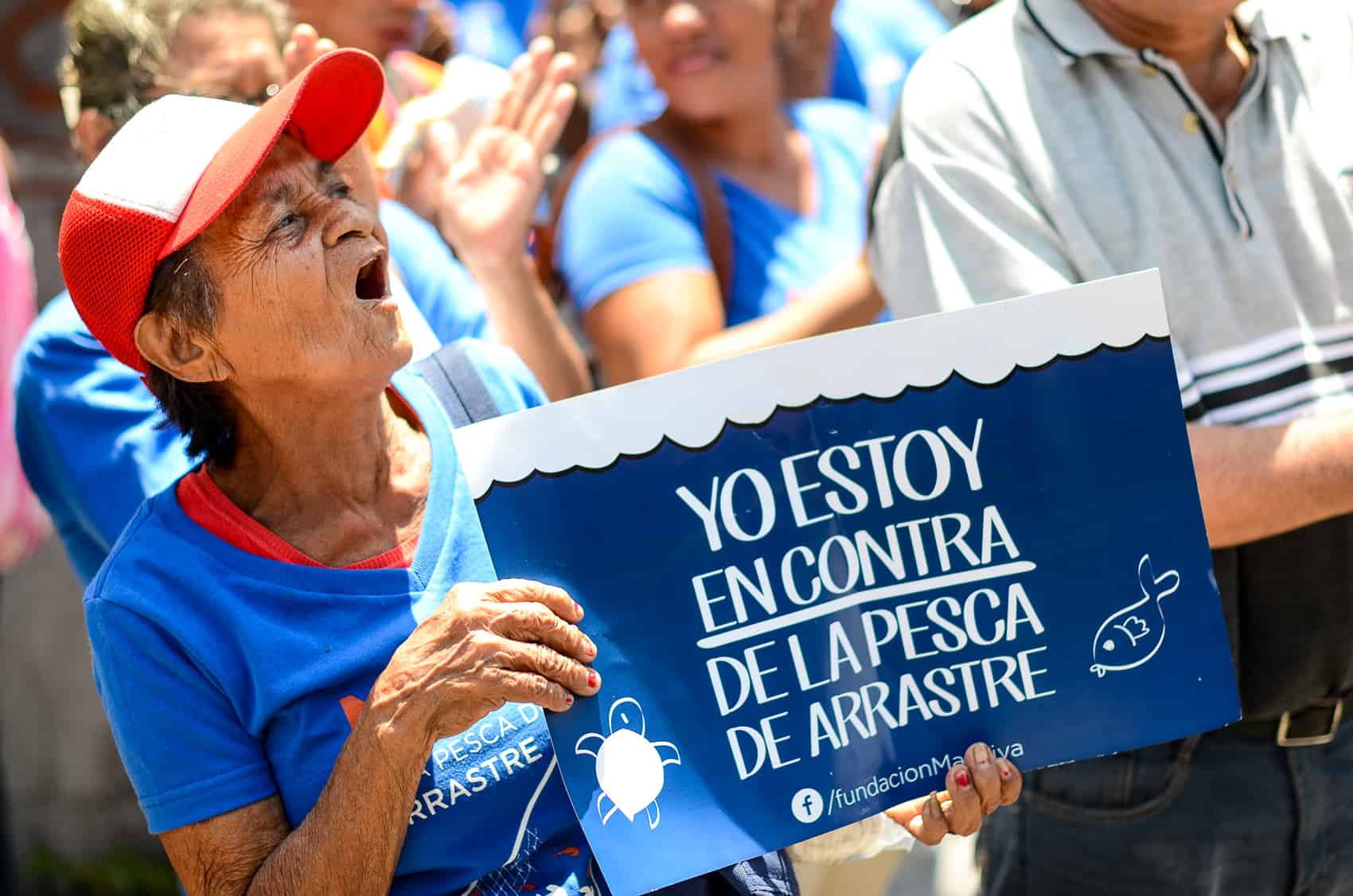“Anyway, like I was sayin’, shrimp is the fruit of the sea. You can barbecue it, boil it, broil it, bake it, saute it. There’s uh, shrimp-kabobs, shrimp creole, shrimp gumbo. Pan fried, deep fried, stir-fried. There’s pineapple shrimp, lemon shrimp, coconut shrimp, pepper shrimp, shrimp soup, shrimp stew, shrimp salad, shrimp and potatoes, shrimp burger, shrimp sandwich. That – that’s about it.”
Those famous movie lines as Bubba talks about the shrimping business to Forrest Gump make your mouth water. When Bubba doesn’t make it back from Vietnam, Forrest goes into the shrimping business in his honor. Through a series of comical errors, Forrest ends up with a whole fleet of shrimp boats, all named Jenny, and becomes a millionaire. The movie almost makes fishing for shrimp a romantic affair.
In real life, please take it from me: dragging the ocean floor for shrimp is anything but romantic. As the director of MarViva, a nonprofit that lobbies for good marine practices in Costa Rica, Panama, and Colombia, I have worked against shrimping for many years. In 2013, the Constitutional Chamber of Costa Rica’s Supreme Court passed a sentence ending the practice. Remaining boats can operate until their current license expires in 2019.
Besides having a bycatch rate of sometimes more than 90 percent – meaning that for every 10 pounds of shrimp captured, 90 pounds of juvenile fish and other bottom species are caught and discarded dead, back in the ocean – much of the ocean floor is damaged by dragging heavy sleds that hold the nets. The artisanal fishing fleet claims that shrimp boats, with their landings down, have been targeting bottom species like grouper, snapper and congria, affecting their ability to make a living.
The sentence to end shrimping has been challenged by the Costa Rican Fisheries Institute (INCOPESCA), which governs all fishing in Costa Rica. Shrimpers claim they have come up with a method to cause much less damage and release many of the species that were discarded before. INCOPESCA began to issue new shrimp licenses, claiming the bycatch problem had been addressed with turtle and fish excluder devices, The Court ruled against it, stopping the licensing program. Both the major universities support ending shrimping in Costa Rica permanently.
The no shrimping sentence has been like a government yoyo here: it was approved by higher courts, was readdressed by the Fisheries Institute, and readdressed by Congress. The only claim put forward by opponents of the ban is that it will put people out of work if it is upheld. The shrimping sector says 3,000 people would be left without employment. However, no studies have been published to support those claims.
In fact, a socioeconomic study showed that the true number is around one-third of that number: 580 jobs on the Pacific side of Costa Rica and maybe another 200 on the Caribbean side. What’s more, the government of Costa Rica has done very little to address the problem since an end to shrimp trawling was first voted into place in 2013.
The last time it was brought back to life, less than two hours after the issue was brought to the table again, Costa Rica’s Legislative Assembly voted to allow shrimping once again without any scientific support. Once again, this is being challenged in the higher court.
At MarViva, we understand that people need to work and have offered to assist the government in training these people in new fields. Aquaculture is an alternative we have offered. It has been successful here in Costa Rica, but in the private sector.
Privately owned fish farms are currently raising shrimp, oysters, and snappers for consumption, both inside the country and for export. MarViva has also lobbied the government to give incentives to businesses in sectors such as manufacturing to set up operations near the coast to help offset the employment problem.
We hope that Costa Rica is moving forward and not backwards on this issue. No one can imagine allowing acres and acres of rainforest to be cut so that a small group of people can have more pasture for cattle. The question is, is the damage to the marine life and sea floor worth it? The next higher court decision will make that choice.
Costa Rica is famous for looking after its flora and fauna. Hotels operate at a higher cost and tourists gladly pay a higher rate to stay in a place that has been certified as eco-friendly. That certification is done by the Costa Rican Tourist Board (ICT) after hotels comply with a set of requirements including recycling, proper trash disposal and many other things.
What has been forgotten is the menu in these hotels. For years it was overlooked. Today hotels can operate on a voluntary basis but are not required to participate. Everyone wants to eat Costa Rican seafood, but how was it caught? Was a selective method of fishing used, or were many other species sacrificed to catch the target species? Hotel owners participating in the sustainable tourism program should ask these questions, as should guests of the hotel.
Costa Rica desperately needs an honest method to certify sustainably caught seafood. It draws more money at the market for fisherman and consumers feel better when choosing these products. INCOPESCA is close to approving the greenstick, which is a method to catch tuna with almost zero bycatch. These fish need to be certified because fish caught in tuna nets have a horrific bycatch.
There is no simple solution, but we need to better manage marine resources.
Jorge A. Jiménez is the General Director of MarViva. Read more or support the organization’s work here.






